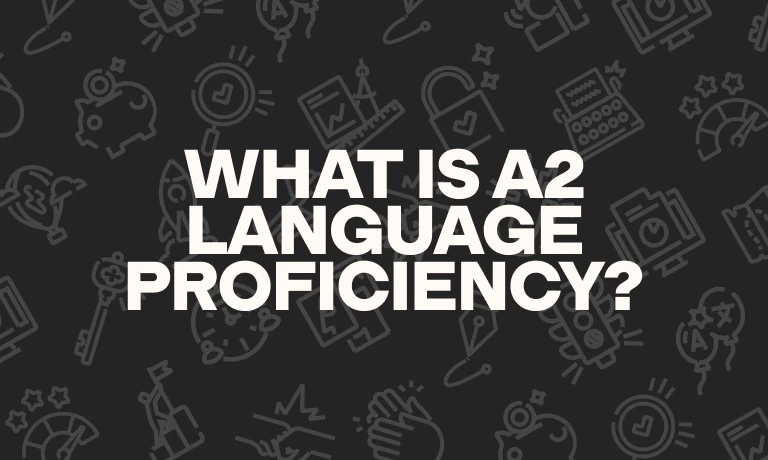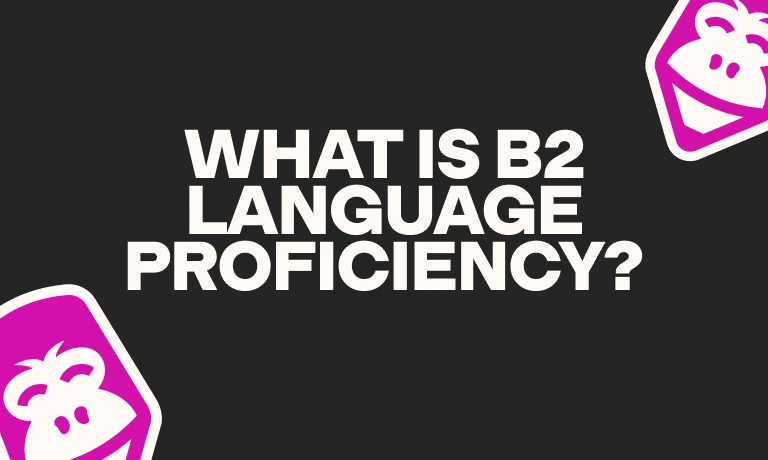40 school counselor interview questions to hire a counselor who’ll make a difference
If you're on the hunt to find your next school counselor, you know how crucial this role is. School counselors do so much more than guide students through their academic and personal challenges – they shape a positive, supportive school environment where every student gets a chance to shine.
That's why building the right recruitment funnel isn't just important; it's essential.
Finding the best fit isn't always easy, especially if you're relying on resumes to decide whom to interview. Sure, a resume tells you where someone's been, but does it show you whether they can actually help your students’ excel? Not quite.
That's where pre-employment skills tests and the right school counselor interview questions come into play. They're your secret weapons that enable you to delve deeper and understand who's going to make a difference in your students' lives.
In this article, we're diving into the details of what makes a school counselor great (rather than average or just good) and how to assess their skills with the right assessments and interview questions.
How to assess school counselors’ skills?
Crafting a spot-on job advert and filtering through the pile of resumes you get is just the starting point – and not quite the whole story when you're on the lookout for a skilled school counselor.
Let's face it, a resume might show someone's journey, but it doesn't necessarily tell you anything about whether they’ll be a match for your school, nor whether they have the practical skills for the role.
Replace resume screening with skills tests – and unstructured interviews with structured discussions – and you’ll have a winning combination.
This approach is all about focusing on what really matters by evaluating candidates’ actual skills and abilities and putting the spotlight on those who truly excel, making your hiring smoother and swifter.
Here are some tests you can use when hiring a school counselor:
Critical Thinking: Ascertain which candidates have the ability to think critically and with clarity, even when dealing with difficult situations.
Problem Solving: Identify individuals capable of solving complex student-related issues.
Communication: Focus on candidates who excel in both verbal and non-verbal communication, ensuring that every student feels understood and valued.
Attention to Detail: Seek out professionals who don’t overlook any detail, addressing minor concerns and significant issues with the same precision.
Time Management: Find candidates who know how to efficiently manage schedules, appointments, and deadlines.
Motivation: Evaluate the intrinsic motivation of candidates and whether their expectations align with what your institution has to offer.
With these tests in your toolkit, you can confidently move to the interview stage, knowing you're only sitting down with the best applicants.
Top 20 school counselor interview questions to hire the best
Below, you’ll find our selection of the best interview questions for school counselors, along with our guidelines on what to expect from candidates to help evaluate applicants effectively.
1. What motivated you to become a school counselor?
Look for candidates who share a genuine passion for supporting and guiding young people. The best responses will often include personal experiences that inspired them to pursue this career.
Listen for mentions of:
A desire to make a positive impact on students' lives
A passion for educational development
A specific moment that sparked their interest in counseling
To make sure you and candidates are on the same page, use our Motivation test.
2. What do you find most rewarding about being a school counselor?
Do candidates find fulfillment in helping students overcome obstacles and achieve their goals?
Strong candidates might talk about achieving breakthroughs in counseling sessions, seeing a student's academic improvement, or reducing instances of bullying in a previous role.
This question assesses candidates' passion and motivation, which are crucial for long-term success in such an emotionally demanding field.
3. What student age groups have you worked with, and how do you adapt your approach to each group?
Skilled candidates will demonstrate an understanding of the developmental differences between students from different age groups and how these differences influence their counseling approach.
For example, they might explain that they use:
Play-based techniques with younger children to facilitate communication
More direct, discussion-based approaches with older students
Listen for specific strategies tailored to each age group's needs, showing the candidate's flexibility and knowledge of developmental psychology.
4. How do you build trust with a new student?
Expect candidates to discuss their initial strategies for establishing rapport with students, such as showing genuine interest in the student's life, being consistent and reliable, and maintaining confidentiality. Experienced school counselors might also mention setting clear boundaries and expectations from the start.
This question evaluates the candidate's interpersonal skills and their ability to create a safe, supportive environment.
5. Can you share an example of a successful intervention you had with a student?
Candidates should provide a specific story that illustrates their problem-solving skills. Effective answers will provide details of the situation, the actions they took, and the outcome.
Look for examples that show empathy, creativity in approach, and a deep understanding of the student's needs. This demonstrates the candidate's capability to make a real difference in students' lives.
6. Tell us about a time when you had to support a student through a crisis.
In their response, candidates should demonstrate their ability to handle high-pressure situations sensitively and effectively. Listen for descriptions of how they:
Assessed the crisis
Made the right interventions
Provided ongoing support to the student
It's important that they also mention working with other professionals or the student's family when necessary. This question assesses the candidate's crisis management skills, professionalism, and capacity for teamwork.
7. How do you address cultural differences when counseling students?
Candidates should mention specific strategies such as actively learning about the student's cultural background, using culturally sensitive counseling techniques, and incorporating the student's cultural values and norms into the counseling process.
It's important they express a commitment to a continuous development of their cultural competences. This demonstrates their respect for and understanding of the diverse needs of their students.
8. How do you help students from diverse backgrounds feel included and understood?
Expect candidates to talk about creating an inclusive environment by:
Celebrating diversity
Creating programs to raise students’ cultural sensitivity
Addressing any form of discrimination or bias
They might also mention personalizing their approach to meet the unique needs of each student, showing their dedication to ensuring every student feels valued and appreciated.
9. How do you engage parents in the counseling process?
Effective responses will include establishing open lines of communication from the get go, respecting parents' perspectives and concerns, and providing them with resources to support their child's development.
Candidates might also talk about why it’s important to work with parents as partners, showing their understanding of the family's role in the counseling process.
10. How do you handle disagreements with parents?
Candidates should describe a professional and empathetic approach, focusing on active listening, seeking to understand parents’ point of view, and working together towards a solution that’s focused on the student's well-being.
Experienced school counselors will give you specific examples of disagreements they’ve handled in the past and talk about the results they achieved despite not being on the same page with parents at first.
11. What’s your approach to supporting a student who is struggling?
Every school counselor needs to know how to adapt their approach to students who are struggling and might be feeling overwhelmed or discouraged at school.
Expect a strategy that includes the following:
An assessment of the student's needs and challenges
Setting achievable goals
Providing consistent support and encouragement
Reaching out to teachers and other school staff to make sure they’re also on board and understand the student’s struggles
More complex cases might require a multi-faceted strategy that involves academic and social interventions.
Such answers show not only the candidate’s expertise but also their empathy and emotional intelligence.
12. What would you do if you suspect a student is a victim of violence at home?
In such a situation, a skilled counselor would show an immediate concern for the student's safety and report their observations in line with mandatory reporting laws. They’d then work with the authorities and social services to establish the appropriate intervention and the level of support the student needs.
They might also discuss providing ongoing support to the student through counseling and connecting them with external resources.
This question assesses their knowledge of legal obligations and their commitment to student welfare.
13. How do you identify cases of bullying? What telltale signs do you look for?
Bullying is a serious problem that requires a proactive stance and swift interventions – but first, candidates should know what to look out for. Expect them to mention:
Direct signs, such as physical injuries or missing belongings
Indirect signs, such as changes in behavior, avoidance of certain areas or peers, unexplained absences
They might also talk about creating an environment where students feel safe reporting bullying.
14. What’s your approach to working with a bully? How do you address their behavior?
Expect candidates to discuss an approach that involves:*
Understanding the underlying reasons for the bullying behavior (like home issues or peer influence)
Setting clear boundaries and consequences
Working on behavior modification strategies
Mentions of restorative justice practices show a deep understanding of the problem and a willingness to correct it rather than simply punish perpetrators.
15. How do you keep track of the progress of multiple students?
Effective responses will include using a combination of digital tools (like student management systems) and traditional methods (like notes and files) to monitor student progress. Regular check-ins with students and collaboration with teachers and parents are also essential.
This demonstrates their organizational skills and commitment to each student's development.
16. How do you ensure that all students have equal access to resources and support?
Candidates should talk about actively assessing the needs of all students, advocating for necessary resources, and implementing inclusive practices that accommodate diverse learning styles and needs.
They might also mention working closely with other staff to eliminate barriers to access, indicating their dedication to equity and inclusivity.
Check out our special education interview questions if you need to evaluate candidates’ experience and skill in working with students with special needs.
17. How would you work with a student experiencing a mental health crisis? What steps would you take to ensure their safety?
Mental health crises are particularly challenging, also because it’s essential to get everything right – otherwise, the consequences could be disastrous for the student and their family.
Expect candidates to outline a protocol that includes:
An immediate assessment of the risk
Providing a safe space for the student and talking to them about their struggles
Getting in touch with the student’s family
Involving mental health professionals if and as necessary
Following up with appropriate support measures and external resources
These measures demonstrate a comprehensive and sensitive approach to crisis intervention.
18. How do you determine when a student needs to be referred to another professional or service?
Candidates should use a combination of:
Observations
Direct interactions
Consultations with teachers and parents to assess a student's needs
They should mention specific thresholds or indicators that prompt a referral, such as when issues are beyond their scope of practice or when specialized intervention is necessary. This shows their ability to make informed decisions in the best interest of the student.
19. How do you assist students in exploring their post-secondary options?
You should look for candidates who use a personalized approach to guiding students through their higher-education options.
They should emphasize getting to know each student's interests, strengths, and aspirations, and then tailor their guidance to help students explore all available paths, including college, vocational training, or entering the workforce.
Skilled school counselors will also mention the use of various resources, such as career assessments, college fairs, and alumni networks.
20. Describe your approach to helping students develop a career plan.
Candidates should describe a process that is engaging and comprehensive, starting with identifying the student's passions and leading to the creation of a step-by-step action plan.
Look for mentions of facilitating real-world experiences like internship programs or job shadowing, as well as flexibility in adjusting plans as students' goals evolve.
The best insights on HR and recruitment, delivered to your inbox.
Biweekly updates. No spam. Unsubscribe any time.
20 additional interview questions for school counselors
If you need more ideas for interview questions you can ask school counselors to find the right talent for the role, here are 20 more we’ve prepared for you:
How do you support students in the college application process?
How do you adapt your approach to accommodate students with special educational needs or disabilities?
Describe a time when you identified a school-wide issue based on individual counseling sessions and how you addressed it.
Tell us about a situation where you had to manage a sensitive issue with a student's family.
How do you ensure that communication with teachers and staff is effective in supporting a student's needs?
How do you create a supportive environment among students?
Based on your experience, is it possible to create a school environment that discourages bullying?
How do you educate students about the differences between conflict and bullying?
Describe a policy change you advocated for to improve student well-being.
What strategies do you use to help students develop self-esteem and a positive self-image?
How do you protect your own mental health and prevent burnout?
Describe a time when you went above and beyond for a student.
What strategies do you use to promote inclusivity and respect among students?
Describe a conflict you mediated between students and how you resolved it.
How do you approach resolving conflicts between a student and a teacher?
How do you handle a situation where a student is reluctant to engage in counseling sessions?
Can you discuss a professional setback you've experienced as a school counselor and how you learned from it?
What do you do if you disagree with a school policy that affects student welfare?
How do you measure the effectiveness of your counseling sessions?
Can you give an example of a challenging conversation you had with a parent and how you handled it?
Use the right hiring tactics to find talented school counselors
Remember, while a polished resume can tell you a lot, it's talent assessments and thoughtfully crafted interview questions that enable you to find out who actually has the skills for the job (and not just on paper).
By focusing on applicants’ critical thinking, problem-solving, and communication skills, along with their school counseling experience in previous roles, you're not just filling a position; you're investing in your students’ success down the road.
Sign up for a 30-minute live demo to chat with one of our experts and see whether our platform is the right fit for your school – or sign up for TestGorilla’s free plan to uncover the best talent in your candidate pool, starting today.
Related posts
You've scrolled this far
Why not try TestGorilla for free, and see what happens when you put skills first.














